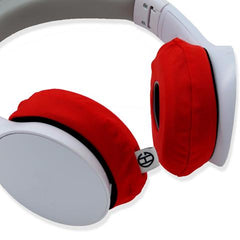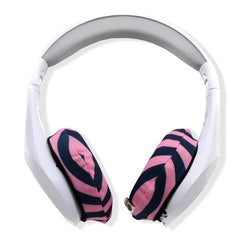Is Exercise Good for Anxiety?

We know that exercise is vital to our physical health but how beneficial is it to our mental health? Is exercise good for anxiety or are tablets and talking therapies always the better option?
What is Anxiety?
The Mental Health Foundation describes anxiety as ‘a feeling of unease, worry or fear, which when persistent and impacting on daily life may be a sign of an anxiety disorder’.
Anxiety is felt both physically and mentally.
Symptoms can include a racing heart, a tightness in the chest, a difficulty in catching a breath or the sudden urge to use a toilet. Dizziness and feeling nauseous can be common, too, as are sweating palms and trembling. Sufferers may sometimes feel as if they’re having a heart attack as the symptoms can be characteristic of both.
Anxiety can manifest physically into a panic attack or it can become something less obvious like suffering from a reduced sex-drive or becoming agrophobic.
Someone who suffers from anxiety may need to be constantly reassured by other people. They might have an overwhelming feeling that something terrible is about to happen. Sufferers can become isolated from the world around them. They might find it difficult to participate in social events and functions and even ordinary chores like going shopping or taking children to school can seem insurmountable. They might have trouble sleeping. They can lose confidence, suffer from depression and become disconnected from their own sense of self.

An estimated 40 million Americans are living with some form of anxiety disorder.
Anxiety UK suggests that 1 in 10 people in the United Kingdom are ‘likely to have a disabling anxiety disorder at some stage in their life.’
According to the HelpGuide website, anxiety disorders can be classified into and are closely related to:
- Generalised Anxiety Disorder
- Panic Attacks and Panic Disorder
- Obsessive Compulsive Disorder
- Phobias and Obsessive Fears
- Social Anxiety Disorder
- Post-Traumatic Stress Disorder
- Separation Anxiety Disorder
You can find more information on these disorders on the HelpGuide website for anxiety disorders and anxiety attacks.
What Causes Anxiety?
The exact causes of anxiety aren’t known.
Anxiety makes sense as a survival function. It makes us cautious, more alert and switched on to the potential dangers in our environment. Anxiety is an evolutionary tool that helped us to survive as a species. The downside of having it hard-wired into our psychology, however, is that, for some people, it can switch on in the most unlikely places — like in the middle of a supermarket or in the communal kitchen of your workplace.
The exact cause of anxiety isn’t known but it does have known-triggers. Mental health charity MIND suggests four things that can be connected to anxiety:
- Past or childhood experiences
- Current life situation
- Physical and mental health problems
- Drugs and medication
The MIND website goes on to give examples of the type of situations that can result in anxiety, and it might be surprising to see how varied they are.
- The death of a parent or close family member
- Physical or emotional abuse
- Unemployment
- Long working hours
- Financial pressure
- Exhaustion
- Being bullied
- Chronic illness
- Alcohol use
- Taking medication for a physical health complaint
Earlier in the post, we mentioned that 1 in 10 people in the UK (similarly in the US) are likely to develop some form of anxiety disorder in their lifetime. It’s hardly surprising when you look at the list above as anxiety triggers read like a shopping list of modern-day experience.

Current Treatments for Anxiety Disorders
If you’re diagnosed as having General Anxiety Disorder, then you may be offered one or more of the following treatments.
- Psychological therapy like Cognitive Behavioural Therapy
- Applied Relaxation through a therapist
- Medication
Your GP might also recommend some things that you can do yourself to help reduce symptoms including physical activity, cutting out alcohol and caffeine, and practicing mindfulness and meditation.
Is Exercise Good for Anxiety?
We should all know how important exercise is for our physical health. What researchers and scientists are now starting to understand better is how regular physical activity can be just as important to our mental health.
“During exercise, your heart rate shoots up, but over time, as your fitness level improves, your heart begins to work more efficiently. As a result, your resting heart rate between exercise sessions eventually becomes slower. Improved heart and lung function due to regular aerobic activity are often associated with a greater sense of overall well-being, which can help offset feelings of anxiety”.
Exercise is a mood-booster.
When we exercise the body releases endorphins which makes us feel better. An article on Aapativ.com highlights the importance of maintaining a regular exercise pattern in combating anxiety and depression. They write:
“Upon exercising, neurotransmitters like serotonin or norepinephrine help teach your body how to better respond to stressors. Studies even show that low levels of both are linked to depression and anxiety. So, higher levels of those chemicals during exercise naturally make you feel good.”
Aerobic exercise appears to be the most effective form of exercise but walking regularly will help, too. When we workout we’re focused on the exercise we’re doing leaving less mental space to fixate on poor quality or damaging thoughts.
Both the NHS and the Department of Health and Human Services recommend around 150 minutes of moderate exercise or 75 minutes of vigorous exercise each week. Brisk walking, swimming and even mowing the lawn contribute to your quota of moderate exercise so there’s no need to visit a gym if you’d rather not.
What’s great about using exercise as a way to treat anxiety is that it doesn’t come with the side-effects that some people experience after taking medication.

Women’s Health spoke to author Eleanor Morgan about her struggle with anxiety and how exercise helps her manage it. The entire piece is worth reading but what’s really interesting is how 10 to 15-minute walk could be as good as reducing anxiety as a 45-minute workout.
Interestingly, too, Eleanor says that ‘I have days when I don’t feel able to work out, but this is why having the discipline of a routine is so important to me. Routines are fantastic for the anxious brain’.
Working out can be great at helping people manage their anxiety. For some people, however, exercise isn’t going to be enough on its own. Everyone’s journey is different. Anxiety can be so debilitating that even rolling a yoga mat out on a bedroom floor can be too much.
If you’re struggling with anxiety and can’t manage exercise, then there is plenty of other help available. We’ll add links at the bottom of this post.
But for those whose anxiety is manageable then exercise presents an incredible opportunity not just to benefit mental health but physical health, too.
In the UK:
In the US:
Anxiety and Depression Association of America
In Australia:
Headspace - National Youth Mental Health Foundation



